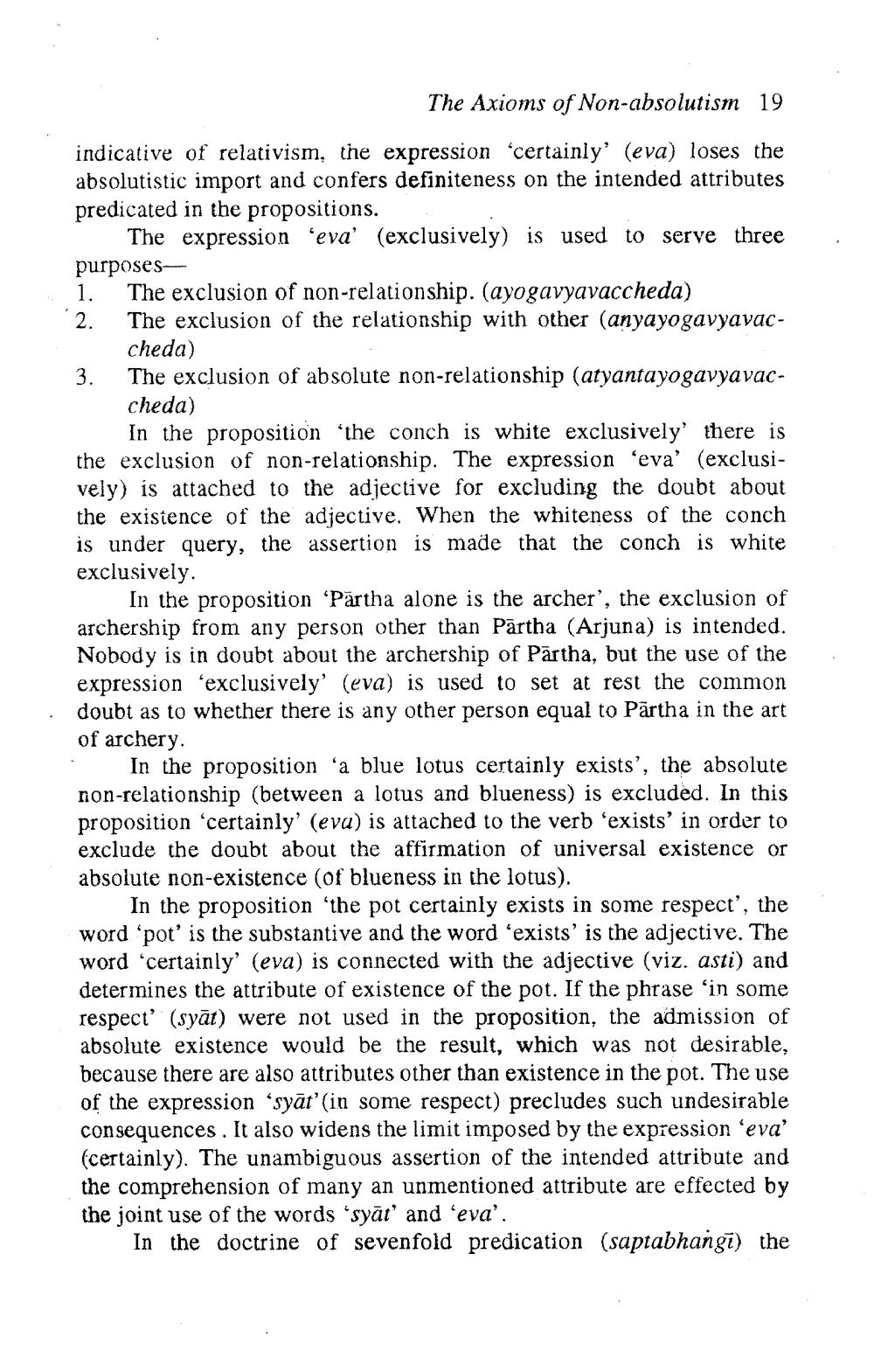________________
The Axioms of Non-absolutism
19
2.
The ex
indicative of relativism, the expression ‘certainly' (eva) loses the absolutistic import and confers definiteness on the intended attributes predicated in the propositions.
The expression “eva' (exclusively) is used to serve three purposes1. The exclusion of non-relationship. (ayogavyavaccheda)
The exclusion of the relationship with other (anyayogavyavac
cheda) 3. The exclusion of absolute non-relationship (atyantayogavyavac
cheda)
In the proposition the conch is white exclusively there is the exclusion of non-relationship. The expression “eva' (exclusively) is attached to the adjective for excluding the doubt about the existence of the adjective. When the whiteness of the conch is under query, the assertion is made that the conch is white exclusively.
In the proposition 'Pärtha alone is the archer', the exclusion of archership from any person other than Pārtha (Arjuna) is intended. Nobody is in doubt about the archership of Partha, but the use of the expression 'exclusively' (eva) is used to set at rest the common doubt as to whether there is any other person equal to Pārtha in the art of archery.
In the proposition 'a blue lotus certainly exists', the absolute non-relationship (between a lotus and blueness) is excluded. In this proposition 'certainly' (eva) is attached to the verb 'exists' in order to exclude the doubt about the affirmation of universal existence or absolute non-existence (of blueness in the lotus).
In the proposition 'the pot certainly exists in some respect, the word ‘pot' is the substantive and the word 'exists' is the adjective. The word 'certainly' (eva) is connected with the adjective (viz. asti) and determines the attribute of existence of the pot. If the phrase 'in some respect' (syāt) were not used in the proposition, the admission of absolute existence would be the result, which was not desirable, because there are also attributes other than existence in the pot. The use of the expression “syāt' (in some respect) precludes such undesirable consequences. It also widens the limit imposed by the expression 'eva' (certainly). The unambiguous assertion of the intended attribute and the comprehension of many an unmentioned attribute are effected by the joint use of the words 'syāt' and 'eva'.
In the doctrine of sevenfold predication (saptabhangi) the




